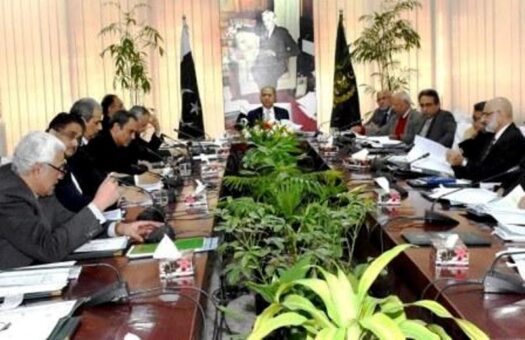ISLAMABAD: The Economic Coordination Committee (ECC) of the Cabinet on Wednesday allowed import of controlled chemicals through commercial importers.
The ECC which met under the chair of Adviser to Prime Minister on Finance and Revenue Dr Abdul Hafeez Shaikh allowed import of controlled chemicals through commercial importers.
The chemicals will includes acetone, anthracitic acid, ethyl ether, hydrochloric acid and sulphuric acid.
The ECC also imposed a ban on the export of onions till May 30, 2020.
Meanwhile, the ECC gave approval to a technical supplementary grant of Rs451.681 million for Naya Pakistan Housing and Development Authority and Rs110 million in favour of the planning ministry for Afghan projects.
The forum also approved the technical supplementary grant of Rs5.9 million for capacity building of teachers training institutes and training of elementary teachers in former FATA, Gilgit Baltistan, AJK, Islamabad.
The meeting approved for provision of Rs636.05 million as technical supplementary grant to National Disaster Management Authority (NDMA) to cope with the locust.
The committee, while making amendments in Import Policy Order 2016, also directed Federal Board of Revenue (FBR) to clear the Halal logo items till April 30, 2020.
In another summary, the ECC has asked the Finance Division to give a subsidy on ‘Nomenclature of export-oriented Industries clarified’ within 14 days on the receipt claimed by petroleum Division.
On a summary moved by the Ministry of National Food Security and Research, ECC allowed public sector procurement of 8.25 million tonnes of wheat at Rs1,365 for the coming season. If need arises, 0.5 million tonnes will be imported around the year to cater for any shortages.
Furthermore, on a summary moved by the Ministry of Energy, the committee allowed GSA to be signed by SNGPL for “1263.2 MW RLNG based power generation project near Trimmu Barrage”.
